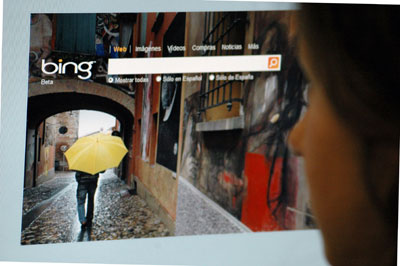First Posted: 16/12/11 08:39 GMT Updated: 16/12/11 09:36 GMT
A crude love poem written almost 450 years ago by a Roman Catholic woman and sent to a Protestant scholar who served Edward VI has been discovered in the back of a book by a British academic.
When Professor Treharne took her class of undergraduates on a tour of medieval literature in the library of West Virginia University, she thought she was introducing another year of eager literature students to the familiar wonders of Chaucer.
Instead, tucked into a 1561 edition of the poet’s work, she was about to discover what she now believes to be the only known Latin love poem written by an Englishwoman until the 18th century.
After translating the poem Treharne discovered that the poem was penned by Lady Elizabeth Dacre, a married Catholic woman, and addressed to Sir Anthony Cooke, a Protestant and tutor to King Edward VI. During this time it was common for lustful Tudor men to pen verses to woo the objects of their affection but extremely unusual for a lady to do the same.To Anthony Cooke
To Anthony Cooke
The goodbye I tried to speak but could not utter with my tongue by my eyes I delivered back to yours.
That sad love that haunts the countenance in parting contained the voice that I concealed from display, just as Penelope, when her husband Ulysses was present, was speechless – the reason is that sweet love of a gaze.
Then afterwards Ovid sends greeting muses to the absent, just as to you, distant, I have sent my small note.
……..More
I hope then that silent Dacre will not be scorned by you for the mind has suffered and held fast in faithfulness to you.
Believe that among servants there is not any more faithful:
as Plancus Plotinus thus will Dacre be to you.
I remain your servant Plancus, more faithful than any;
to this servant Dacre, you remain sweet Coke.
Long enough am I now; but if your shape should swell under its grateful burden, then shall I become to you a narrow girdle.
The poem appears to hint at a love that never had a chance to flourish. It begins with a sweet description of the pair’s parting during which the poet recalls being ‘speechless’ with love, before taking a somewhat raunchier turn in its final line. You don’t know to be a professor in medieval literature to interpret the ‘swelling shape’ and ‘narrow girdle’ Dacre hopes will one day be reunited.
Professor Treharne told LiveScience «It’s a very beautiful piece and I think for her it was quite a prized possession, because it’s been so very carefully copied out and looked after.»
«If it was a rhetorical exercise I wonder why she kept it.»
http://www.huffingtonpost.co.uk/2011/12/16/erotic-poem-written-by-wo_n_1152973.html?view=print

